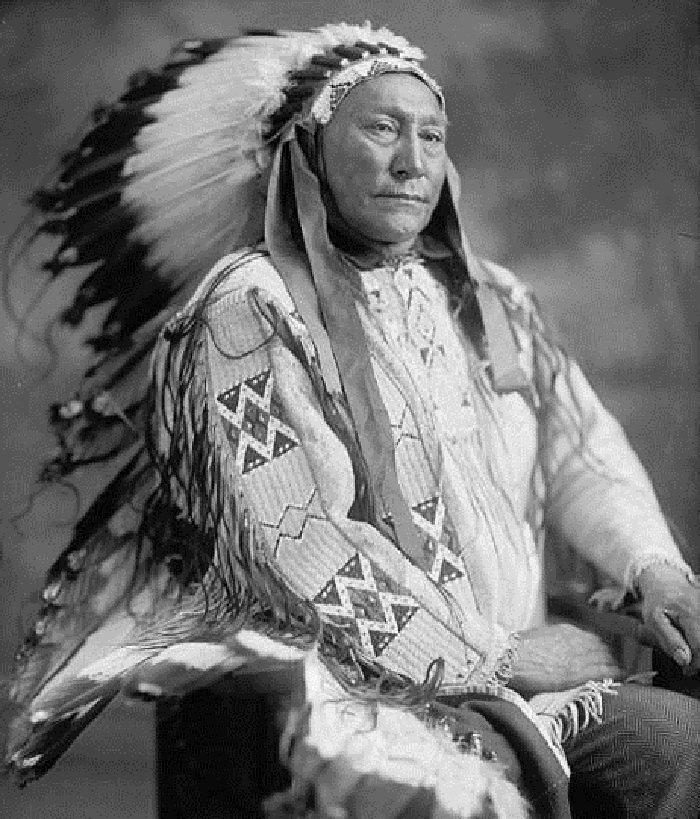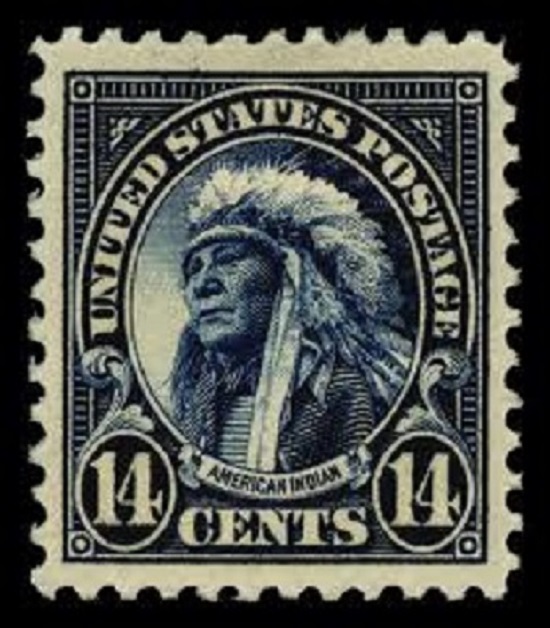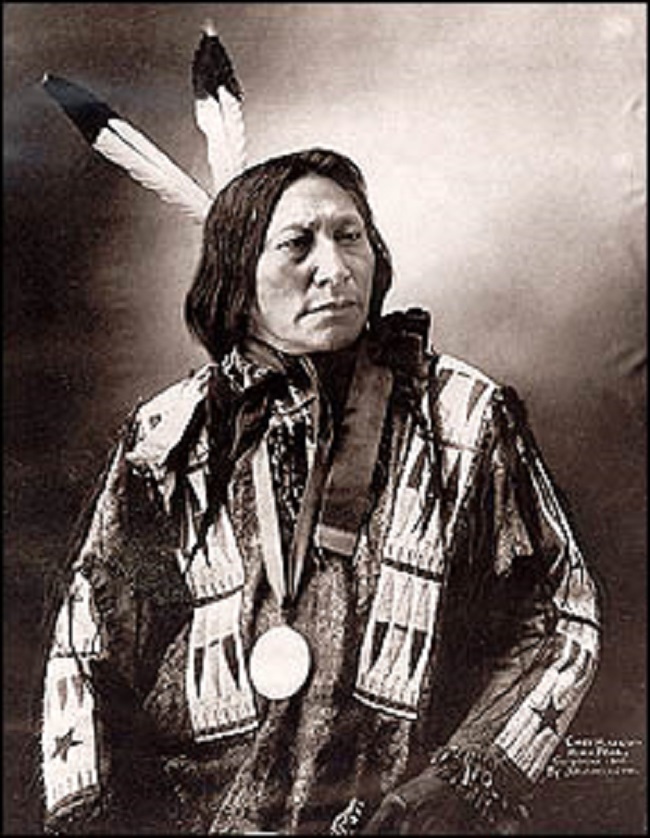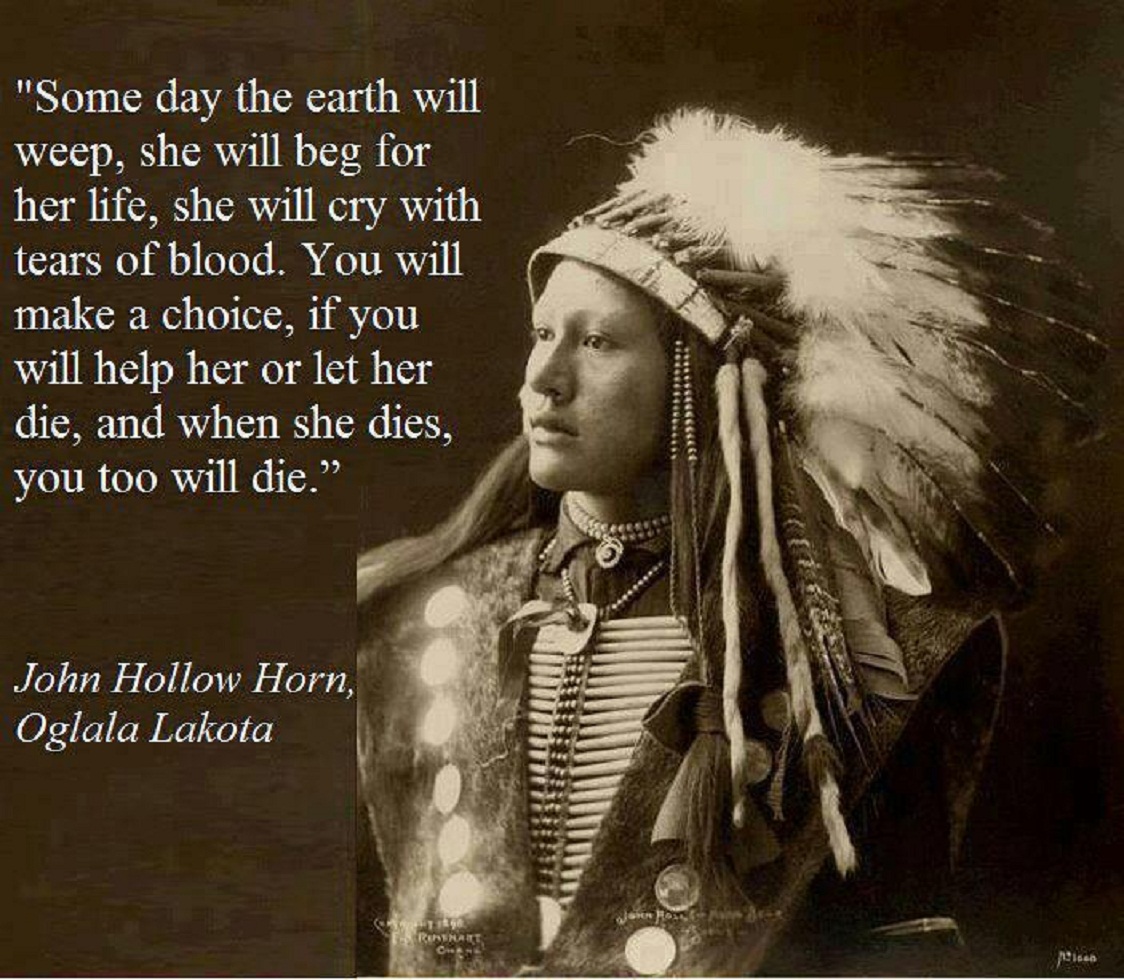
Hollow Horn Bear (1850-1913) was a prominent Native American leader who played a significant role in advocating for the rights of his people during a tumultuous period in United States history. Born into the Lakota Sioux tribe, Hollow Horn Bear witnessed firsthand the devastation caused by the encroachment of settlers onto Native American land. Despite the many challenges he faced, he went on to become a respected military leader, diplomat, and political activist, dedicating his life to fighting for the rights and freedoms of Native American people. In this article, we will examine the biography of Hollow Horn Bear, exploring his life and times in depth and considering the lasting impact of his legacy on Native American history.
1. Early Life and Childhood of Hollow Horn Bear
Introduction to Hollow Horn Bear's Life
Hollow Horn Bear, also known as Matȟó Nážiŋ or Brave Horn in Lakota, was a prominent Native American leader and activist during the late 19th and early 20th centuries. He was born in 1850 near the Cheyenne River in present-day South Dakota and belonged to the Miniconjou Lakota tribe.
Family Background and Upbringing of Hollow Horn Bear
Hollow Horn Bear was the son of a chief and was raised in a traditional Lakota community. His father played a crucial role in his upbringing, teaching him the ways of the tribe and imparting important values such as courage, respect, and honor.
Hollow Horn Bear's Early Educational Experiences
Hollow Horn Bear's early educational experiences consisted of learning the Lakota language, history, and culture from his parents and other tribal elders. He also received some formal schooling from Christian missionaries who had established a school in his community.
Significant Events and Influences in Hollow Horn Bear's Childhood Years
One significant event that had a profound impact on Hollow Horn Bear's childhood was the US government's forcible removal of his tribe from their ancestral lands to a reservation in 1868. This experience instilled in him a deep sense of injustice and motivated him to work towards defending the rights of his people.
2. Hollow Horn Bear's Involvement in the Sioux Wars
Hollow Horn Bear's Military Experience and Training
Hollow Horn Bear fought in the Sioux Wars of the 1870s, a series of conflicts between the US government and several Plains Indian tribes, including the Lakota. He was known for his bravery and leadership in battle and quickly rose through the ranks to become a respected warrior.
The Significance of the Sioux Wars in Native American History
The Sioux Wars were a pivotal moment in Native American history, marking the end of the traditional way of life for many tribes and the beginning of a new era of forced assimilation and displacement. Hollow Horn Bear's involvement in this conflict gave him a firsthand understanding of the injustices faced by his people and fueled his determination to fight for their rights.
Hollow Horn Bear's Role in Key Battles of the Sioux Wars
Hollow Horn Bear played a key role in several notable battles during the Sioux Wars, including the Battle of Little Bighorn, where he fought alongside the legendary Lakota leader, Crazy Horse. He also participated in the Battle of Slim Buttes, where he distinguished himself for his bravery and strategic thinking.
Impact of the Sioux Wars on Hollow Horn Bear's Life and Career
The Sioux Wars had a profound impact on Hollow Horn Bear's life and career. They solidified his reputation as a warrior and leader among his people and gave him valuable experience in diplomacy and negotiations with the US government.
3. The Role of Hollow Horn Bear in Negotiating the Treaty of 1889
The Historical Context of the Treaty of 1889
The Treaty of 1889 was a significant agreement between the US government and several Native American tribes, including the Lakota, which ceded large tracts of land in present-day South Dakota to the US in exchange for monetary compensation and other benefits.
Hollow Horn Bear's Appointment to the Treaty Commission
Hollow Horn Bear was appointed to the Treaty Commission as a representative of the Lakota people. His extensive knowledge of Lakota customs, language, and culture made him an invaluable asset to the negotiations.
Hollow Horn Bear's Contributions to the Treaty Negotiations
During the Treaty negotiations, Hollow Horn Bear fought tirelessly to defend the rights of his people and secure a fair deal with the US government. He advocated for the establishment of schools and other resources for Native Americans on the reservation and worked to preserve their cultural heritage.
Public Reaction to the Treaty of 1889 and Its Implications for Native Americans
The Treaty of 1889 was met with mixed reactions from Native Americans and the wider public. While some saw it as a necessary compromise, others viewed it as a betrayal of their people's sovereignty and a violation of their rights.
4. Hollow Horn Bear's Advocacy for Native American Rights
Hollow Horn Bear's Political Career and Activism
After the Treaty of 1889, Hollow Horn Bear continued to advocate for the rights of Native Americans, serving as a tribal councilman and working to establish legal protections for his people. He also travelled extensively, speaking out against injustices and advocating for greater rights and freedoms for Native Americans.
Challenges and Obstacles Faced by Hollow Horn Bear in Advocating for Native American Rights
Hollow Horn Bear faced many challenges in his advocacy work, including opposition from the US government, hostile public opinion towards Native Americans, and internal divisions within his own community. Despite these difficulties, he remained a steadfast and passionate advocate for his people's rights.
Hollow Horn Bear's Key Achievements in Advancing Native American Rights
Hollow Horn Bear played a significant role in advancing the rights of Native Americans, fighting for greater representation in government, legal protections against discrimination, and improved access to education and resources. He also worked to preserve Lakota culture and language, recognizing their importance as a vital part of Native American identity.
Hollow Horn Bear's Legacy in the Native American Rights Movement
Hollow Horn Bear's legacy as a leader, warrior, and advocate for Native American rights lives on today. His contributions to the struggle for Native American sovereignty and self-determination continue to inspire and guide activists and leaders in their work towards a more just and equitable future.ing Mechanisms and Resilience
7. Hollow Horn Bear's Activism and Leadership
Hollow Horn Bear's Role as a Leader and Activist within the Native American Community
Hollow Horn Bear's Efforts to Preserve Native American Culture and Traditions
Hollow Horn Bear's Advocacy for Native American Rights and Sovereignty
8. Hollow Horn Bear's Controversies and Criticisms
The Controversies Surrounding Hollow Horn Bear's Career and Legacy
The Criticisms Leveled Against Hollow Horn Bear by Native American Communities and Others
Evaluating Hollow Horn Bear's Legacy in Light of These Controversies and Criticisms
5. Hollow Horn Bear's Legacy and Impact on Native American History
The Historical Significance of Hollow Horn Bear's Life and Career
Hollow Horn Bear's life and career represent an important chapter in Native American history. As a leader and activist, he worked tirelessly to promote Native American rights and sovereignty during a time of immense conflict and change. His legacy as a visionary and pioneer of Native American advocacy has helped to inspire generations of activists and leaders who continue to fight for justice and equality.
Hollow Horn Bear's Contributions to Native American Culture and Society
Hollow Horn Bear's contributions to Native American culture and society are immeasurable. From his work as a cultural ambassador and storyteller to his advocacy for Native American language and education, Hollow Horn Bear played a critical role in preserving and promoting Native American traditions and values. His legacy continues to inspire and inform Native American cultural practices and identity today.
The Enduring Legacy of Hollow Horn Bear's Story Today
Hollow Horn Bear's story continues to resonate with people around the world, both within and outside of the Native American community. As a symbol of resilience, courage, and hope, his legacy serves as a reminder of the enduring strength and vitality of Native American culture and identity.
6. Hollow Horn Bear's Family Life and Personal Struggles
The Family Life and Relationships of Hollow Horn Bear
Hollow Horn Bear was deeply committed to his family and community. He was a devoted husband, father, and uncle, and his relationships with his loved ones were central to his life and work. Despite facing significant challenges and systemic discrimination, Hollow Horn Bear remained dedicated to creating a better life for his family and his people.
Hollow Horn Bear's Personal Struggles and Challenges
Hollow Horn Bear faced numerous personal struggles throughout his life, including discrimination, poverty, and illness. Despite these challenges, he remained steadfast in his commitment to creating positive change and never lost sight of his goals and values.
Hollow Horn Bear's Coping Mechanisms and Resilience
Hollow Horn Bear's remarkable resilience and coping mechanisms allowed him to face and overcome the many obstacles in his life. From his strong religious faith to his unwavering commitment to his family and community, Hollow Horn Bear's resilience and strength continue to inspire and uplift people today.
7. Hollow Horn Bear's Activism and Leadership
Hollow Horn Bear's Role as a Leader and Activist within the Native American Community
Hollow Horn Bear was a visionary and passionate leader who played a key role in shaping the Native American rights movement. His advocacy for Native American sovereignty and culture was central to his work as a leader and activist, and his influence continues to be felt today.
Hollow Horn Bear's Efforts to Preserve Native American Culture and Traditions
Hollow Horn Bear was deeply committed to preserving and promoting Native American culture and traditions. From his work as a cultural ambassador to his efforts to promote Native American language and education, Hollow Horn Bear helped to ensure that the rich culture and traditions of his people would be passed down to future generations.
Hollow Horn Bear's Advocacy for Native American Rights and Sovereignty
Hollow Horn Bear was a fierce advocate for Native American rights and sovereignty. He fought tirelessly for the recognition and protection of Native American land, resources, and identity, and helped to shape the modern landscape of Native American activism and advocacy.
8. Hollow Horn Bear's Controversies and Criticisms
The Controversies Surrounding Hollow Horn Bear's Career and Legacy
Like many prominent figures in Native American history, Hollow Horn Bear's legacy has been subject to controversy and debate. Some have criticized his leadership and tactics, while others have questioned the accuracy and reliability of his biographical accounts.
The Criticisms Leveled Against Hollow Horn Bear by Native American Communities and Others
In addition to external criticisms, Hollow Horn Bear has also faced criticism and opposition from within the Native American community. Some have questioned his commitment to traditional cultural practices, while others have criticized his alliances with non-Native Americans and advocacy groups.
Evaluating Hollow Horn Bear's Legacy in Light of These Controversies and Criticisms
While it is important to acknowledge and address the controversies and criticisms surrounding Hollow Horn Bear's legacy, it is also critical to recognize the immense impact and significance of his life and work. By continuing to engage with and learn from his story, we can work towards a more just and equitable future for Native American communities and all people.In conclusion, the life and times of Hollow Horn Bear shed light on the resilience and determination of Native American leaders in the face of adversity. Despite facing considerable challenges during his lifetime, Hollow Horn Bear's legacy has endured through the ages, inspiring generations of Native American activists and leaders in their ongoing fight for justice and equality. His contributions to the advancement of Native American political and social rights, as well as his dedication to preserving the cultural heritage of his people, continue to be celebrated and remembered today.
FAQ
What was Hollow Horn Bear's role in negotiating the Treaty of 1889?
Hollow Horn Bear was appointed to the Treaty Commission that negotiated the Treaty of 1889, which was a significant event in the history of Native American relations with the United States government. He played an instrumental role in ensuring that the treaty included provisions that protected the rights and interests of his people.
What were some of Hollow Horn Bear's key achievements in advocating for Native American rights?
Hollow Horn Bear was a tireless advocate for Native American rights, and his efforts led to many significant achievements. He fought against the Dawes Act, which sought to divide Native American lands into individual parcels and sell them to settlers. He also worked to secure funding for Native American education and healthcare initiatives, and he advocated for greater political representation for Native Americans at the local, state, and national levels.
What was the significance of the Sioux Wars in Native American history?
The Sioux Wars were a series of conflicts between the United States government and various Native American tribes, including the Lakota Sioux, that occurred between 1854 and 1890. The wars resulted in the displacement of Native American communities and the loss of many lives. They also played a significant role in shaping the relationship between the United States government and Native American people, and they continue to be an important part of Native American history and identity.
Why is Hollow Horn Bear's story important today?
Hollow Horn Bear's story is important because it highlights the resilience and determination of Native American leaders in the face of adversity. His legacy continues to inspire and inform the ongoing fight for Native American rights and representation. Additionally, his story serves as a reminder of the rich cultural heritage and history of the Lakota Sioux and other Native American communities.
____________________________
After a Skirmish with the Brule Sioux Indians in 1855, an army lieutenant found a child alone on the battlefield. He returned it to the Brules. This child was Hollow Horn Bear, the son of Chief Iron Shell. Chief Hollow Horn Bear became a great orator, and was interested in the plight of the Brule Sioux people. He was present at the inauguration of President Theodore Roosevelt and President Woodrow Wilson, While in Washington he contracted pneumonia and died. His body was shipped back to the Rosebud Reservation in Nebraska in 1913. His portrait is on the old 14 cent U.S. postage stamp land the old $5.00 currency bill.
___________________________
Hollow Horn Bear (Lakota name Matȟó Héȟloǧeča) (ca. 1850 – 1913) was a Brulé Lakota leader during the Indian Wars on the Great Plains of the United States.
Hollow Horn Bear was born in what today is Sheridan County, Nebraska. He was the son of chief Iron Shell. Although he initially raided the Pawnee, he later was involved in harassing forts along the Bozeman Trail with other Sioux leaders between 1866 and 1868. During this period, he became famous as the chief who defeated Capt. William Fetterman. However, he began to favor peace with the whites during the 1870s. He became a celebrity in the East, and was present at several functions as a native representative. He was featured on a 14-cent postage stamp and on a five dollar bill.
He was appointed the head of Indian police at the South Dakota Rosebud Agency, and arrested Crow Dog for the murder of Spotted Tail. He was also involved in treaty negotiations. In June of 1895 he demanded the removal of J. George Wright, an unpopular Indian Agent, over the reduction of Indian rations and fright allowances. Hollow Horn Bear issued 21 days' notice to the Agent to abdicate and for the Whites to leave the Reservation. In September of 1895 Agent Wright imprisoned Hollow Horn Bear in the agency's guardhouse but, subsequently, released him. In 1896 Wright was promoted to the position of Indian Inspector, with authority that extended over numerous Indian Reservations and agencies. In 1905, Hollow Horn Bear was invited to take part in the presidential  inauguration of Theodore Roosevelt, and in 1913, he led a group of Indians to the inauguration parade of President Woodrow Wilson. He caught pneumonia during the visit and died.
inauguration of Theodore Roosevelt, and in 1913, he led a group of Indians to the inauguration parade of President Woodrow Wilson. He caught pneumonia during the visit and died.
http://en.wikipedia.org/wiki/Hollow_Horn_Bear
 After a Skirmish with the Brule Sioux Indians in 1855, an army lieutenant found a child alone on the battlefield. He returned it to the Brules. This child was Hollow Horn Bear, the son of Chief Iron Shell. Chief Hollow Horn Bear became a great orator, and was interested in the plight of the Brule Sioux people. He was present at the inauguration of President Theodore Roosevelt and President Woodrow Wilson, While in Washington he contracted pneumonia and died. His body was shipped back to the Rosebud Reservation in Nebraska in 1913. His portrait is on the old 14 cent U.S. postage stamp land the old $5.00 currency bill.
After a Skirmish with the Brule Sioux Indians in 1855, an army lieutenant found a child alone on the battlefield. He returned it to the Brules. This child was Hollow Horn Bear, the son of Chief Iron Shell. Chief Hollow Horn Bear became a great orator, and was interested in the plight of the Brule Sioux people. He was present at the inauguration of President Theodore Roosevelt and President Woodrow Wilson, While in Washington he contracted pneumonia and died. His body was shipped back to the Rosebud Reservation in Nebraska in 1913. His portrait is on the old 14 cent U.S. postage stamp land the old $5.00 currency bill.
